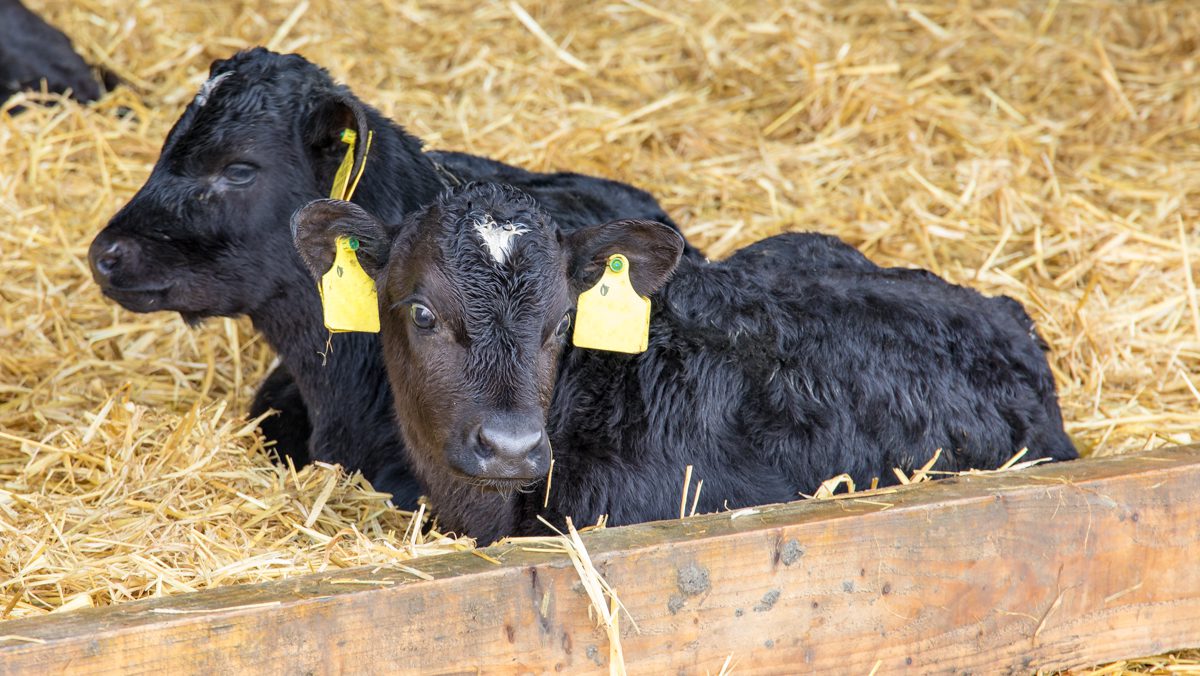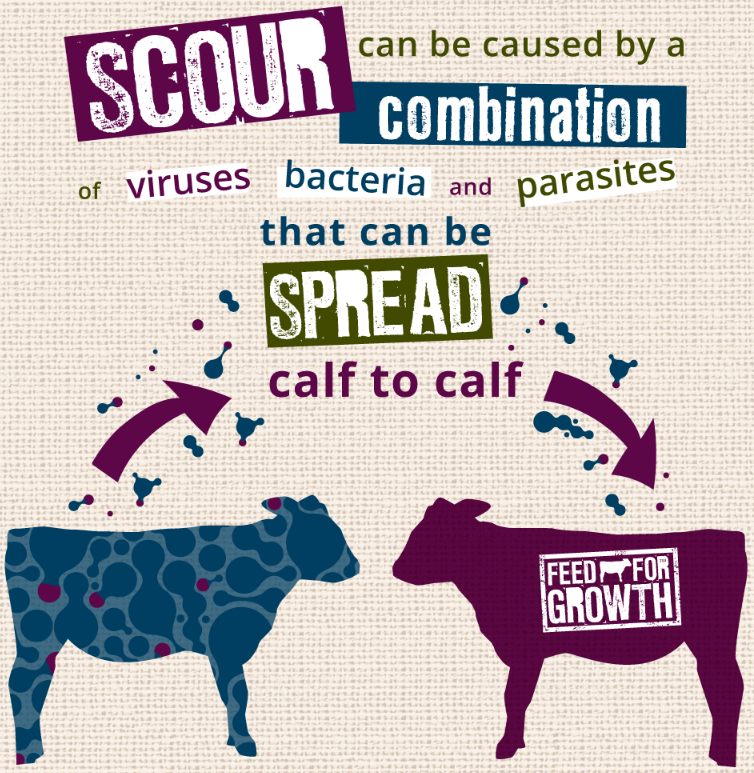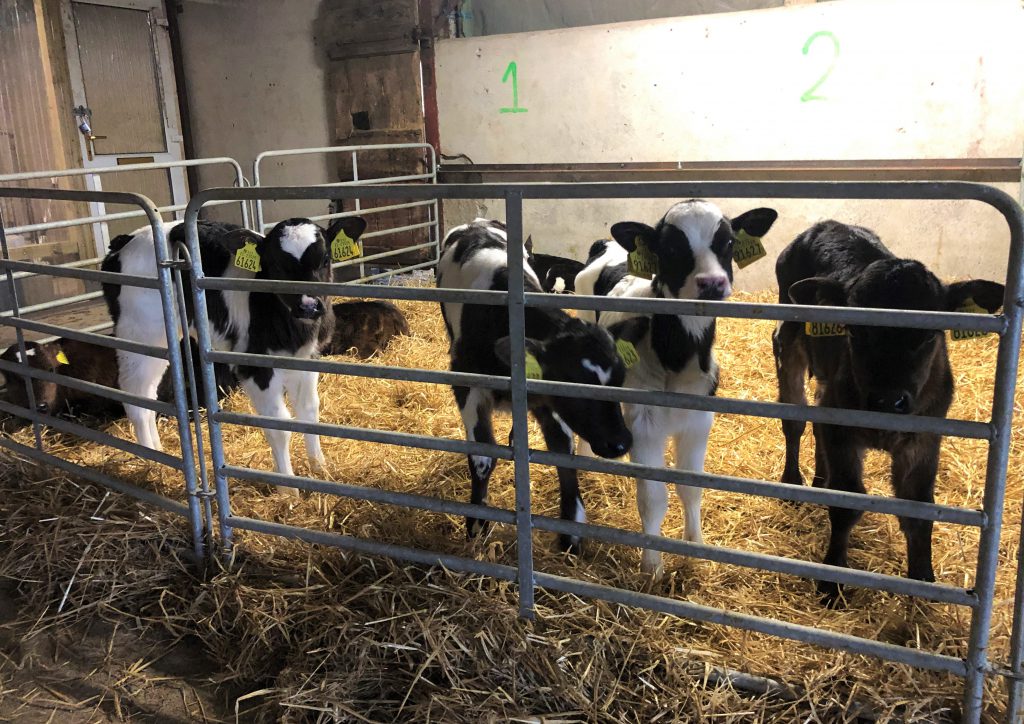For the final segment of the Agriland and Volac ‘Calf Health Series’, we will discuss the impact of scour on young calves, while also taking a look at the measures that can be put in place to avoid the disease.
The age-old saying that ‘prevention is better than cure’ is quite the case when it comes to any disease on farms – but is certainly something that needs to be considered when handling calf scours.
In the case of older calves that are less than one-month-old, scours can still occur – but can be more so associated with being caused by E.coli, salmonella and coronavirus.
Scour, as a result of coccidia, is typically seen in calves greater than three weeks-of-age. Pathogens (organisms that cause disease) which cause coccidia are ingested by manure from other infected calves or cows.
Therefore, this highlights the ever increasing need to maintain high levels of hygiene within calf housing – as the bacteria and pathogens involved in causing scours can be spread from the walls in the shed, the bars on the gates and on feeding equipment.
Impact of scours
A scour outbreak in the calf shed is not only going to cause discomfort for the calf, it is also going to impact the farmer dealing with cases – especially if there is a large outbreak within a calf house.
If a calf is badly affected by a scour, it will reduce the levels of performance achieved in terms of feed intake and growth rates. The calf will be on the back foot in comparison to the rest of the group, as a scour can cause a stunt in performance.
Scour impact:
- Reduced growth rates;
- Treatment costs;
- Increased labour;
- Lead to other diseases such as pneumonia;
- Can result in mortality.
Prevention
The prevention of outbreaks depends on managing the balance between the level of infection the new-born calf is exposed to, and the level of resistance to infection within the calf through colostrum intake and vaccination.
Disinfecting the calf’s environment and good hygiene prevents contact between the calf and manure. Aim to feed high volumes of clean, antibody-rich, colostrum immediately to the newborn calf; these are the basics to stopping scour outbreaks.
Between each batch of calves, farmers need to clean and disinfect with an appropriate product effective against crypto and surfaces on which calves might lick or chew; allow these surfaces to dry thoroughly after disinfection.
If a person is handling calves, they should wash their hands and ideally change their clothing and footwear to stop the spread of the parasite/bacteria between each group – especially in cases where sick calves are being handled.
Treatment
When it comes to treating the calf you want to replace the fluid the calf loses. Therefore, electrolytes can be fed to rehydrate the calf.
A scouring calf will need a minimum of 4L extra fluid of the correct glucose, salt and bicarbonate concentration, as well as milk to appetite. Antibiotics are used only as directed by your veterinary surgeon.
Cows can be vaccinated pre-calving to increase antibodies to E. coli, rotavirus and coronavirus in the colostrum.
For newborn calves, farmers should continue to feed clean colostrum for as many feeds as possible, depending on the herd’s Johne’s Disease status.
Volac ASGold is a dietetic complementary feed for the stabilisation of water and electrolyte balance.
It may be used in case of risk of, or recovery from digestive disturbance (diarrhoea) and can be fed in conjunction with the normal milk diet; it is also an ideal first feed for bought-in calves.
It contains a unique blend of electrolytes, glucose, natural plant fibres and pectins. Volac ASGold is a light brown, easy to handle, dry powder, containing a unique blend of electrolytes, glucose, natural plant fibres and pectins.
Volac ASGold:
Re-energises;
Rehydrates;
Revitalises.
The concluding point when it comes to preventing scours is to provide calves with the best environment possible. Avoid causing cold stress in calves under three weeks-of-age by providing deep, warm bedding and good nutrition.
More information
Volac has been involved in young animal nutrition for the past 40 years and is an innovator in this field.
The company is committed to helping farmers make the most of their calves and has developed a range of specialised milk replacers, which are specifically formulated for modern dairy and beef animals.
For more information, contact a Volac representative today, or visit the Volac website by clicking here




